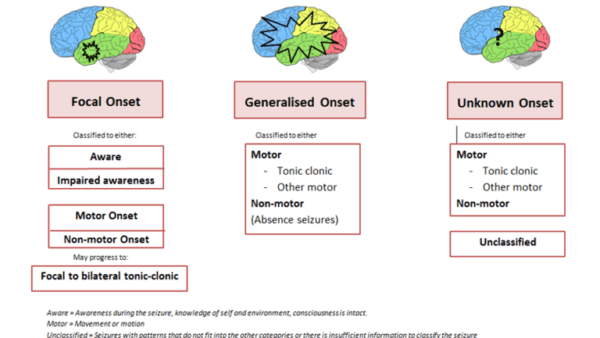What is radiosurgery? Radiosurgery is a surgery that uses ionising radiation to destroy precisely selected areas of tissue, usually tumours and cancers. This procedure is specifically called stereotactic radiosurgery. It usually involves a single treatment of very focused radiation beams (gamma rays, X-rays, or protons) in a focused location without a surgical incision or opening. […]
Toxoplasmosis
What is toxoplasmosis? Toxoplasmosis is caused by an infection with the Toxoplasma gondii parasite which usually occurs through eating undercooked contaminated meat, exposure from infected cat faeces, or mother-to-child transmission during pregnancy. For generally healthy people it doesn’t pose any significant danger, however, in individuals with weakened immune system, babies and pregnant women, it can […]
Types of Seizures
What is a seizure? Seizure is an uncontrolled burst of electrical activity in brain cells (nerves/neurons) that causes temporary abnormalities in movements, muscle activity/tone, behaviours, sensations, or states of awareness. Seizures are not alike as symptoms can vary between people depending on the causes and simply on the person experiencing it. A seizure can be […]
Salt Disorders in Neurosurgical Patients
What are the most common salt disorders in neurosurgical patients? Various salt disorders can occur in neurosurgical patients including hormone disorders, medications-induced disorders and volume-related problems. The most common are: hyponatraemia which is a low blood sodium concentration (<135 mmol/l) without any identifiable cause SIADH – syndrome of inappropriate anti-diuretic hormone (ADH) secretion Cerebral salt […]


